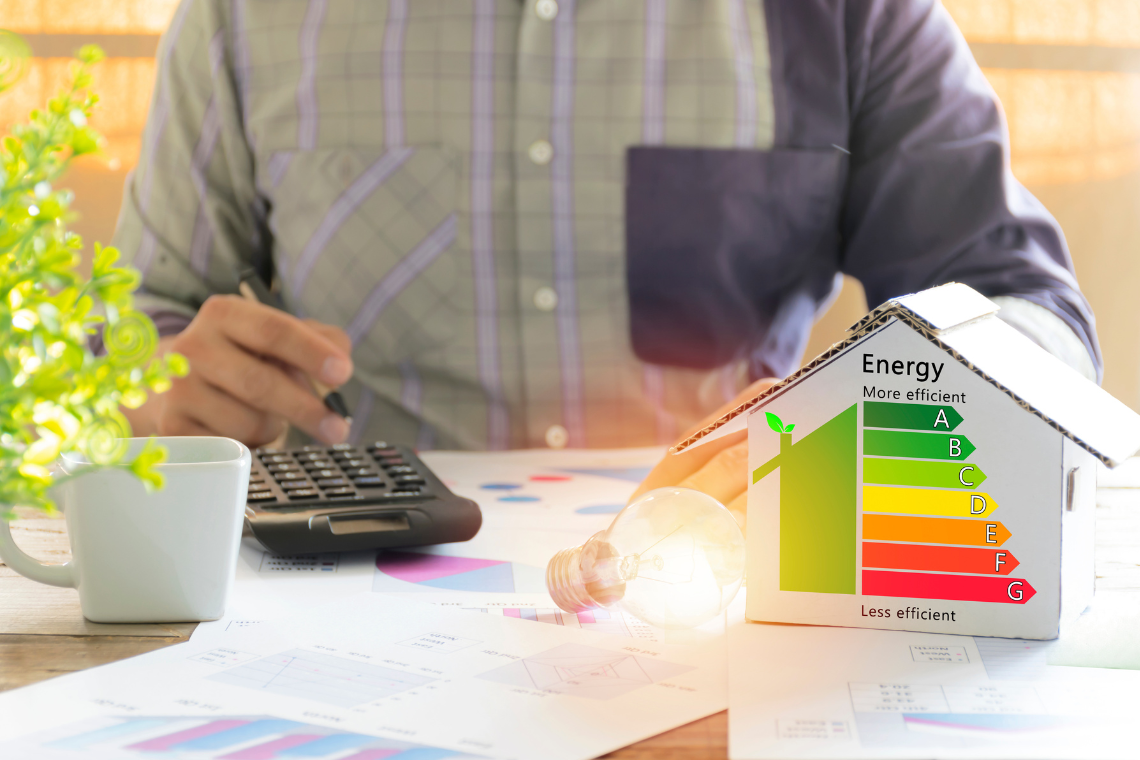
As the temperatures go down, energy bills go up. But it doesn’t have to be that way. Practice energy efficiency in your home and save some dollars without compromising comfort with the following tips:1. Vary the temperature on your thermostat
Whether you’re getting ready for work or preparing breakfast, it’s nice to keep your space nice and warm. However, if you must go to the office or run errands, you can lower the temperature to save energy.2. Be aware of phantom energy users
TVs, video game consoles, computers, printers, and many other electronics use energy even when not turned on. If you’re travelling, make sure you unplug them.
3. Make natural light your best friend
When the sun is shining bright outside during the day, you can put your blinders up so the heat can enter your space. Close your blinds to trap the heat when the sun is coming down.
4. Close doors and heating vents in unused rooms
Be certain there is no plumbing in the walls of unused rooms, as the temperature could drop enough to freeze any plumbing.
5. Keep the basement warm
Otherwise, keeping the basement cold can make your ground floor colder.
6. Keep hot showers as short as possible
We know this is a hard one, but it is effective!
7. Only heat necessary spaces
Avoid wasting energy in uninsulated areas such as garages, crawlspaces, the attic, unused rooms, or storage sheds.
8. Manage the airflow in your home
Keep air events clear of furniture and appliances so your furnace can work more efficiently.
9. Take care of your fireplace and chimney
Chimneys act like an open window. Ensure your damper is closed and it's as snug as possible when you’re not using your fireplace. You can also consider installing a heat-air exchange system that blows warm air into the room using tempered glass doors.10. Don’t forget to close your doors and windows!
To check if your door provides good insulation, place your hand on it from the inside. If it feels cooler than the inside walls, you can consider installing a better-insulated door. Fully insulated doors on all garage entrances, cold storage rooms, and un-insulated basements are efficient energy savers. As for windows, clear plastic sheeting adds more insulation and reduces icy drafts with minimal effort and cost.
Whether you’re getting ready for work or preparing breakfast, it’s nice to keep your space nice and warm. However, if you must go to the office or run errands, you can lower the temperature to save energy.2. Be aware of phantom energy users
TVs, video game consoles, computers, printers, and many other electronics use energy even when not turned on. If you’re travelling, make sure you unplug them.
3. Make natural light your best friend
When the sun is shining bright outside during the day, you can put your blinders up so the heat can enter your space. Close your blinds to trap the heat when the sun is coming down.
4. Close doors and heating vents in unused rooms
Be certain there is no plumbing in the walls of unused rooms, as the temperature could drop enough to freeze any plumbing.
5. Keep the basement warm
Otherwise, keeping the basement cold can make your ground floor colder.
6. Keep hot showers as short as possible
We know this is a hard one, but it is effective!
7. Only heat necessary spaces
Avoid wasting energy in uninsulated areas such as garages, crawlspaces, the attic, unused rooms, or storage sheds.
8. Manage the airflow in your home
Keep air events clear of furniture and appliances so your furnace can work more efficiently.
9. Take care of your fireplace and chimney
Chimneys act like an open window. Ensure your damper is closed and it's as snug as possible when you’re not using your fireplace. You can also consider installing a heat-air exchange system that blows warm air into the room using tempered glass doors.10. Don’t forget to close your doors and windows!
To check if your door provides good insulation, place your hand on it from the inside. If it feels cooler than the inside walls, you can consider installing a better-insulated door. Fully insulated doors on all garage entrances, cold storage rooms, and un-insulated basements are efficient energy savers. As for windows, clear plastic sheeting adds more insulation and reduces icy drafts with minimal effort and cost.